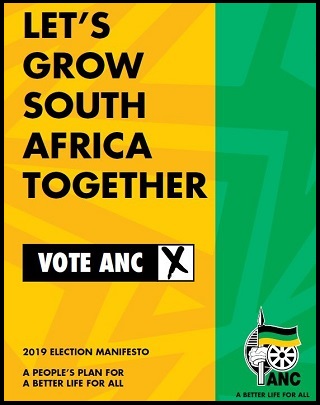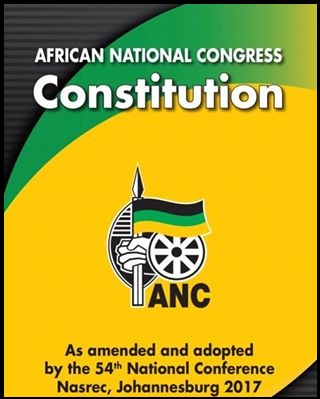The renewable energy space and the pursuit of green energy is a realistic preposition that at the same time could be a driver of the ANC-led government’s Black Industrialists Programme.
On Friday the three day gathering of the World Economic Forum (WEF) Africa wound down in Cape Town. Among the sessions on Friday’s agenda was “Powering Africa” – wherein participants discussed, among others, how transformations in demand and supply are closing the energy gap in Africa. The prioritising of renewable energy resources as catalysts for development in energy infrastructure scarce countries, was on the agenda.
The idea that renewable energy resources can play a key role in ‘leapfrogging’ power challenges faced by developing countries is increasingly gaining currency.
New technologies that harness solar, wind and hydro are accessing previously unconnected communities to the grid, bypassing the ‘traditional’ fossil fuel sources, much like the way in which the telecoms revolution has enabled millions to have access to mobile networks, bypassing traditional ‘land-line’ telephony.
Increasing in international forums such as the WEF Africa, South Africa is increasingly being held up as a case of international best practice in terms of access to and harnessing of renewables.
‘The Guardian’ noted this week, that South Africa “has been quietly creating one of the world’s most progressive alternative energy plans….feeding clean energy into the strained electricity grid.’ The article further noted the transformative potential of green energy for rural communities in particular.
At the St. Petersberg dialogue on climate change earlier this year, German chancellor Angela Merkel added to the growing international chorus of praise for South Africa’s renewables drive, and in particular, our Renewable Energy Independent Power Producers Programme (REIPPP).
This highly successful programme, which facilitates private-public sector partnerships to co-generate energy: is being held up as one of the most successful programmes of its kind globally. Not only this but as local renewable energy projects steadily increase their contribution to stabilising the grid, several businesses, among them several JSE-listed firms, are producing their own energy, much of it produced as part of industrial processes, such as sewage processing, sugar refining and paper making.
The renewables space and its potential for growing the economy and uplifting communities should also be considered within the government’s drive to grow black industrialists.
As localization of the renewable energy sector becomes mainstreamed, the potential is immense for facilitating the entry of new players into the space, in line with the National Development Plan and its objectives of growing black and women owned businesses.
Those who would believe the barriers to entry remain high with the benefits minimal, should consider the recent release of a Council for Scientific and Industrial Research (CSIR) study into the increasing financial benefit of renewables in SA.
It found that energy from SA’s (first window) wind and solar (photovoltaic) projects created R800m more financial benefits to the country than they cost during 2013. This amounted to a financial benefit of R3.7bn in diesel and coal fuel cost savings.
These figures give pause for thought to naysayers who argue that renewables are light years away from achieving the baseload capacity needed. If one considers that these first projects have generated about 3,922MW of renewable power – with an additional 4,000MW expected to go online by the end of the next window, what has been achieved is impressive.
Developing baseload should and does happen incrementally – and over time. Our achievements are all the more impressive if we take into account that this has taken place over a mere two and a half years.
Renewable energy is becoming cheaper, faster and cleaner.
Technology costs are also falling.
Over the first three project windows in SA, prices have steadily dropped; with photovoltaic tariffs decreasing by about 68% and wind dropping 42%, in nominal terms. By the fourth window, they are expected to drop even further.
According to the CSIR, the cost per kilowatt hour of renewable energy for new projects is now far less than R1 for solar photovoltaic and 60c-80c for wind projects – thereby “keeping the net financial benefits of renewables positive, even in a future with a less constrained power system”.
An additional bonus is that unlike in many other developing countries, there is no policy or regulatory uncertainty on the use of renewables. President Jacob Zuma has consistently and steadfastly emphasized the importance of a sustainable energy mix.
The Integrated Resource Plan (IRP) furthermore clearly outlines the vision for a sustainable energy mix for SA that includes the use of fossil fuels, renewables, alternative energy and nuclear. It is a vision further supported by the National Development Plan.
In a Guardian Sustainable Business article last year, analysts cited SA as a “good role model on renewables” because of its competitive tendering process that both “align(s) with the long-term goals of government and also creates sustainable jobs locally”.
At this point the issue of localization should be at the fore of the discussion. For in order to the ‘renewables revolution’ to be fully realized, these projects must by necessity translate into tangible benefits for South Africans.
Bloomberg New Energy Finance forecasts that the growing need for power in Africa will see about 1.8GW of renewable energy capacity being commissioned in the region this year – more than the amount that came online during the past 14 years combined.
Considering such a statistic, the potential for South African companies, particularly black and women-owned companies; to enter into the renewables space on the continent – one again is immense. The sheer scale of energy demand in Africa will be the crucial driver of renewable energy acquisition.
As lack of access to stable electricity continues to hamper economic growth in Africa, renewable energy holds immense transformative potential.
The climate is ripe for this kind of investment, and for the entry of new players into the space. The number of renewable energy investments SA has attracted in the past three years outstrips those undertaken across the entire continent in the past 20 years.
The International Energy Agency predicts the sub-Saharan African economy as a whole could be boosted by as much as 30% by 2040 under certain conditions, namely greater investment in the power sector, more co-operation on cross-border energy projects, and better resource and energy revenue management.
Addressing this country’s energy challenges that we collectively face requires lateral thinking, innovation and vision.
Falling global oil prices should not delay a transition to cleaner energy, by putting low-carbon projects on the back burner in favour of traditional coal-and diesel-powered electricity.
Working with the private sector, we ultimately aim for such innovative renewable energy initiatives to become mainstream – so that they become the norm, as opposed to the exception.
Comrade Edna Molewa is a member of ANC NEC and Minister of Environmental Affairs




